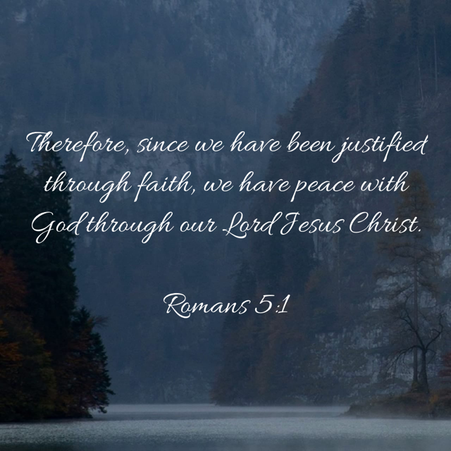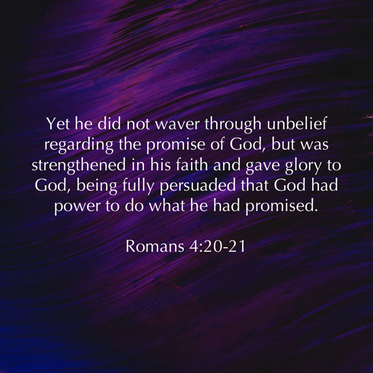|
Good morning! We're so glad you chose to join us today!
Next week, we will not be meeting in person. Instead, we will have worship at the Washington County Fair. We hope you will be able to join us there!
In the United States, we enjoy many good things that people in other parts of the world only dream of — freedom, relative peace, the opportunity for prosperity. However, that does not remove us from the pain and struggles that all people must endure in this life.
When we come together we share our joys and our sorrows, our expressions of gratitude and our pains. Take a moment to think about the hardships that you or that those close to you are dealing with right now. Bring them to God and, if you like, share them by posting them in the comments below. The following prayer is by Christine Jerritt and was posted on her website.
Living God, Maker of heaven and earth, we come into your presence and we know ourselves to be recipients of great and wonderful gifts — the earth, the sky, the waters — given to us here in such abundance and beauty. We lead enormously privileged lives. Don’t let our comfort blind us to the newness you are making in our midst — a newness that is taking us in directions we would not choose on our own; a newness that moves our safe horizons out beyond what we can control.
This much does not change: You are our God; we are your people, bound to you by the love of Jesus Christ and by the call of your Holy Spirit. Faithful God, hold us deep in that truth even as you move us into your new creation. Creating and re-creating God, take us in our uncertainties and make us new. We pray in the name of your Son, who has gone ahead of us into your new future and who beckons us follow. Amen.
This week's lesson is on Revelation 21:1-9.
Introduction
Today we begin a four-part study on the book of Revelation that will take us through the end of this quarter and the end of summer. The book of Revelation is believed to have been written in AD 95 or 96, the final year of Roman Emperor Domitian’s 15-year reign. Fittingly, the book of Revelation is the last book in the Bible. Traditionally, the church has identified the author of Revelation as John the Apostle or John the Elder, the beloved disciple who wrote the book of John. He wrote Revelation near the end of his life, exiled on the 14-square-mile Island of Patmos in the Aegean Sea. It was a barren, rocky place, where John had been sent as punishment, probably for conducting forbidden evangelical work in Ephesus. The book can be divided into three parts. The first is about how Christ appeared to John and how John was to receive visions of mysterious things, which he was to write down and send to the churches in seven nearby cities. The second part is the seven personalized messages to each of those churches. The third part, which consists of chapters 4 through 22, is a description of a series of visions that John had of Heaven and its activities as well as prophetic words from the angels who served as his guides. The book of Revelation is a style of literature known as “apocalyptic.” It is not primarily about worldwide catastrophe or even the end of time, which is how many people use the word “apocalypse” today. Apocalypse literally means the revealing of hidden things, hence the name of the book, Revelation. It is a look at what is happening behind the scenes in heaven, while the church goes through trials and tribulations. Its ultimate message is that — despite evil powers that seem strong and determined and in control — God and God’s church will ultimately triumph.
I. United (verses 1 to 4)
When you compare John’s vision with the creation story in the first chapter of Genesis, you notice that, in Revelation, God is not simply cleaning up the old earth. God is recreating it. This time there is no sea. In the first creation, the sea was what was left when God caused dry land to appear in the midst of the chaos. The sea was a frightening and hostile place for ancient people, which is why frightening images and stories throughout the Bible often involve the sea. Think of Noah and Jonah. Think of the disciples cast about on the stormy sea in Mark 4 or of Paul’s shipwreck experience in Acts 27. The list could go on and on. According to our lesson, “The prediction of no more sea symbolizes not just the absence of chaos and horror in the depth, but also the complete impossibility of such sorrow reaching into the New Jerusalem.” This New Jerusalem will not just be makeover of the old one, either. It will be the heavenly Jerusalem, for which the earthly one was just a sinful reflection. In that place, God will live with God’s people without any physical or spiritual barrier separating them. And because death will now be conquered, crying, pain and the old order of things will be gone as well.
II. Separated (verses 5-8)
In the next section of John’s vision, it is no longer an angel who speaks. It is God. When something is very important for everyone to know, John is told to write it down. That happens 12 times in Revelation, and that is what John is told here. This is the final time. God says that God is making everything new. It is a promise that was needed in John’s time, when persecution and martyrdom were all around and Christians may have been wondering what it meant and if God was, indeed, in control. But it is also a perspective that Christians in our time and Christians of all generations need to keep in mind, especially when they experience pain or loss. God is creating an eternal and new reality for us, where there will be no more tears or pain or corruption. Again, in John’s vision, God speaks. It is done. The battle is finished. God, who was there at the beginning of creation, is there at the end of that creation and at the start of the new creation. This is why God identifies God’s self as “the Alpha and the Omega,” the first and last letters of the Greek alphabet. Next God promises to give the water of life without cost to those who are thirsty. It is an echo of the words of Isaiah 55:1a: “Come, all you who are thirsty, come to the waters; and you who have no money, come, buy and eat!” Like the words of Isaiah, God’s words, recorded by John, do not refer simply to an abundant supply of actual water in the New Jerusalem. They refer to the sustaining spiritual water that gives eternal life. All this God promises to those who stand firm in the face of persecution and pain, to those who overcome. Such people will be God’s children. But those who fail to trust in God, those who live contrary to God’s directives, will be cut off from God and Christ. This fate is symbolized by a lake of fire and burning sulfur.
III. Transition (verse 9)
Our lesson for today ends with a reference to the bride, the wife of the Lamb. It is the church, composed of those who have overcome and who have endured because of their faith in the Lamb — that is, Christ. In our final lesson of this quarter on August 28, more will be said about the bride and the free water that God will give thirsty. But in the remainder of chapter 21 (not in today’s lesson) the angel shows John the city where the bride will live in close fellowship with God, a city without darkness or night because God’s glory gives it constant light.
Conclusion
Life seems to gallop by at ever-increasing speed as we age. We cannot slow it down. I have a plaque in my office to remind me of this. It reads: “Only one life, ’twill soon be past, Only what’s done for Christ will last. To me to live is Christ.” What does the future hold for us then? John’s vision is that of a genuine, eternal utopia. The New Jerusalem will be the perfect place, for it is the dwelling place of God and the Lamb. It will be a place of spiritual wholeness, where there will be no more tears and where those who despise God are denied entrance. It will be the ultimate, eternally new city, the city of God for all time. We have confidence, for we believe that the promises of Revelation “are trustworthy and true” (Revelation 21:5). We have a reward, for we are heirs of the riches of God (21:7a). Most of all we have an assured hope, for we will have perfect, eternal fellowship with him (21:7b). Prayer Eternal God, may we never forget your promise! May we not fear death, for we know that your Son has conquered death. In his name we pray. Amen. Questions for discussion: What are some ways to use pain to grow spiritually? What spiritual practice helps you most in being an “overcomer”?
Benediction
This week's benediction is from the Christian Standard Bible.
Next week's lesson is on Revelation 21:10-21.
0 Comments
Leave a Reply. |
AuthorWe are a small, rural Presbyterian church in southwestern Pennsylvania. Archives
July 2024
Categories
All
|



 RSS Feed
RSS Feed